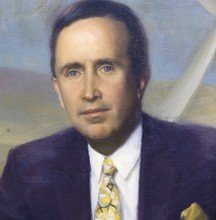By Kevin Gray
This summer, Dr. Richard Edlich ’58 of Brush Prairie, Wash., hopes to receive news from the U.S. Food and Drug Administration (FDA) that will cap a nearly lifelong pursuit—a ban of cornstarch-treated medical gloves.
A respected pioneer in the surgical field, Edlich has dedicated his career to improving the safety and outcome of wound care in medicine.

Richard Edlich '58
Among his many innovations, he developed the first adhesive skin closure tape that approximates wound edges, the first compact electrosurgical unit, and a non-toxic, no-rinse wound cleanser that minimizes tissue damage. He also pioneered endoscopic gastroscopy, a test to look inside the esophagus, stomach, and first section of the small intestine. In addition, as one of eight physician advisers for the U.S. Department of Medical Services, Edlich supervised the development of emergency medical systems in Maryland, Pennsylvania, Virginia, West Virginia, Washington, D.C., and Puerto Rico.
During his youth, Edlich saw firsthand the effects of cornstarch coating used to enable medical gloves to be pulled on more easily and has been advocating for a ban most of his adult life.
When he was 11 years old, his mother had surgery to remove a benign ovarian tumor. “Much to our surprise, she developed an episode of intestinal obstructions one year later that required emergency surgery,” says Edlich, distinguished professor emeritus of plastic surgery, biomedical engineering, and emergency medicine, University of Virginia Health Sciences Center, Charlottesville.
The obstructions, caused by thin bands of connective tissue that wrapped around her intestines, returned frequently, requiring repeated surgeries. At age 15, Edlich decided to become a doctor to find a cure. After earning a Ford Foundation Scholarship, he left high school to attend Lafayette.
“Although I was only 15, my Lafayette professors did not treat me any differently,” says Edlich, who completed three years as a biology major and was accepted as an early admissions student to medical school. “They were very supportive of me pursuing a career in medicine and orchestrated a scholarship for me at New York University Medical School. Lafayette celebrates its students and is a great champion for their success.”
After completing his M.D. in 1970, Edlich began an eight-year surgical residency and earned his Ph.D. in surgery at University of Minnesota Health Sciences Center. He subsequently completed a plastic surgery residency at University of Virginia Health Sciences Center.
The changing point of Edlich’s life was working with Dr. Owen Wangensteen, chief of surgery at Minnesota. One of the 20th century’s greatest teachers in the field, Wangensteen developed a gastric suction system used to aspirate gas and fluid from the stomach and intestines and remove intestinal obstructions.
Edlich talked with Wangensteen about his mother’s obstructions. “He said they were caused by cornstarch on medical gloves,” says Edlich. “During my residency, I did research that showed cornstarch promoted adhesions that led to intestinal obstruction.” Today, most medical gloves are coated with hydrogel instead of cornstarch.
In 2008, based on strong scientific evidence, Edlich spearheaded a citizen’s petition to the FDA to ban the use of cornstarch on medical gloves. He wrote Medicine’s Deadly Dust: A Surgeon’s Wake-Up Call to Society and the recently released Deadly Powder on Medical Gloves: A Wake-Up Call to the Food and Drug Administration.
Edlich’s distinguished career has spanned almost 40 years.
From 1971 to 1982, he was director of Emergency Medical Service, University of Virginia Hospital. He also served as director of University of Virginia Burn Center and led the effort to build DeCamp Burn and Wound Healing Center. Beginning in 1973, he also held a teaching position. He was honored with the Thomas Jefferson Award in 1991.
Although his surgical career ended in 1985 when he developed multiple sclerosis, Edlich continued to advance the field. In 2004, he became director of trauma research, prevention, and education at Legacy Emanuel Hospital Shock Trauma Center, Portland, Ore. Today, he continues as a consultant to the institution.
Edlich has received many awards and recognitions including the George Washington Kidd Class of 1836 Award from Lafayette, Solomon A. Berson Medical Alumni Achievement Award from New York University, and James D. Mills Award in Emergency Medicine.

4 Comments
Wow, Dr. Richard Edlich sure did have a lot of contributions in the medical field and was a successful Doctor. Thanks for sharing this.
He is really a great person and contributed so much for his society. Only a very few people are on this earth, who work with out selfishness. I salute him for what he gave to his society.
Dr. Edlich had above his chair the inscription I think from Dr Wangensteen or it was his own.
The problem is not the problem, it is your attitude towards the problem that is the problem.
This drove many to explore the unthinkable.
When so many people said it could not be done , he did it.
What a fantastic teacher he is.
Comments are closed.